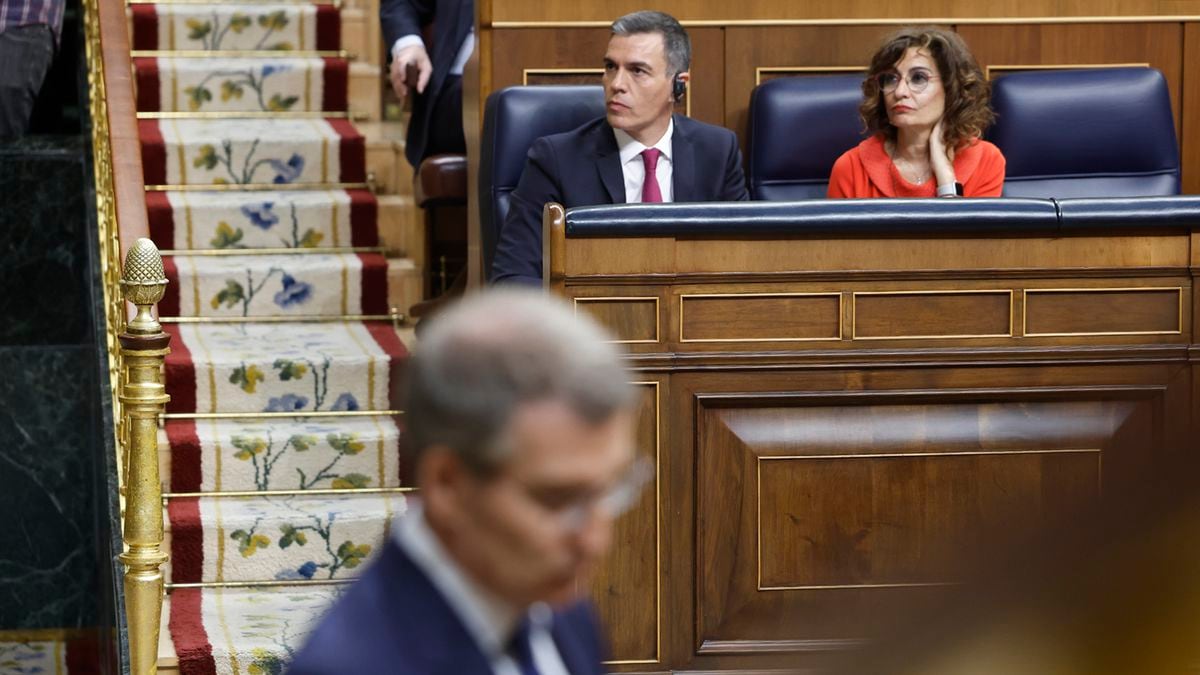What is missing for an Argentina-IMF agreement?
1:13
(CNN Spanish) -
The IMF improves its forecast for economic recovery for Latin America and the Caribbean.
However, he warns of the "winding road" and the acute social impact facing the region.
The recovery of the economies of Latin America and the Caribbean affected by the covid-19 pandemic could be frustrated by the worsening of infections, warns the International Monetary Fund (IMF) in a document on the region published this Monday.
The agency recognized the disproportionate impact that the crisis has had on employment, most acutely on women, youth, informal and less-skilled workers, which is reflected in social indicators.
Alejandro Werner, director of the IMF's Western Hemisphere department, together with economists Takuji Komatsuzaki and Anna Ivanova, warn that Latin America and the Caribbean will take longer than other regions of the world to recover gross domestic product.
They believe that in 2023 it will reach the levels it had before the pandemic and in 2025 they say the same will happen with GDP per capita.
In addition, they warned of an uneven economic reactivation with the risk that the social and human costs will escalate, estimating that more than 17 million people fell into poverty in 2020 due to the pandemic.
Even so, they rule out the increase in inequality in most countries and emphasize that employment remains below pre-crisis levels.
The estimates in the document were calculated when there were 18 million cases and 500,000 deaths from the new coronavirus.
They add in the blog that “the pandemic dealt a harder blow to Latin America and the Caribbean due to the inherent structural weaknesses of the region (for example, more workers in sectors that require physical proximity and less in sectors that support teleworking).
Depending on its population, the region has paid a heavy bill in terms of infections and deaths ”.
The road to recovery according to the IMF
The IMF estimated that this year the economies of Latin America and the Caribbean will experience a recovery of 4.1% —half a percentage point more than it anticipated last October— in view of the expectation that vaccination campaigns will become massive, there will be a better economic growth outlook for the United States and the prices of some raw materials recover.
All this, they say, could accelerate economic growth in the coming months.
IMF
The 2021 recovery forecasts improved for Brazil (3.6%), Colombia (4.6%), Chile (5.8%), Mexico (4.3%) and Peru (9.0%).
But due to the delay in the reactivation of the travel and tourism sector, it lowered the expectations of its forecasts for the Caribbean economies (2.4%).
However, those that export raw materials (Guyana, Suriname and Trinidad and Tobago, will see a recovery of 4.0% this year).
The IMF believes that a faster recovery would come with additional fiscal support, effective vaccination campaigns, and successful containment of the pandemic.
Growth, therefore, failure to contain contagions, new confinements and a change in people's attitude could weigh on growth.
Furthermore, he warns: “A weaker recovery in labor markets would inflict more permanent social damage.
A sudden change in the attitude of international investors could generate pressure on countries that suffer from fiscal and external vulnerabilities ”.
The multilateral organization considers that the contraction suffered by the economies of the region in 2020 was less than the -8.1% that it projected in October, it reduced it to -7.4% due to the rapid recovery experienced between July and September by large economies such as Argentina, Brazil and Peru.
The reactivation of the manufacturing sector - although not the services sector - and net exports, which have already returned to pre-pandemic levels, also played a role.
However, he acknowledged that investment and consumption lag behind.
According to these experts, the IMF has provided more than US $ 66 billion to 21 countries, including contingent lines of credit, which represents more than two-thirds of the emergency liquidity support it has provided worldwide.
Officials make several recommendations to the governments of the region: prioritize resources to health systems, vaccination and testing.
Then, supporting the vulnerable sectors hardest hit by the health crisis and consolidating the recovery that until now is uncertain.
In this sense, it warns that withdrawing fiscal support prematurely could put these objectives at risk.
FMI International Monetary Fund




/cloudfront-eu-central-1.images.arcpublishing.com/prisa/GSAG3AFDE5GZ7CR5RU42LT63UM.jpg)
/cloudfront-eu-central-1.images.arcpublishing.com/prisa/K5MEQYX754ZCFV3SALU5I2KWQQ.jpg)




/cloudfront-eu-central-1.images.arcpublishing.com/prisa/KMEYMJKESBAZBE4MRBAM4TGHIQ.jpg)



